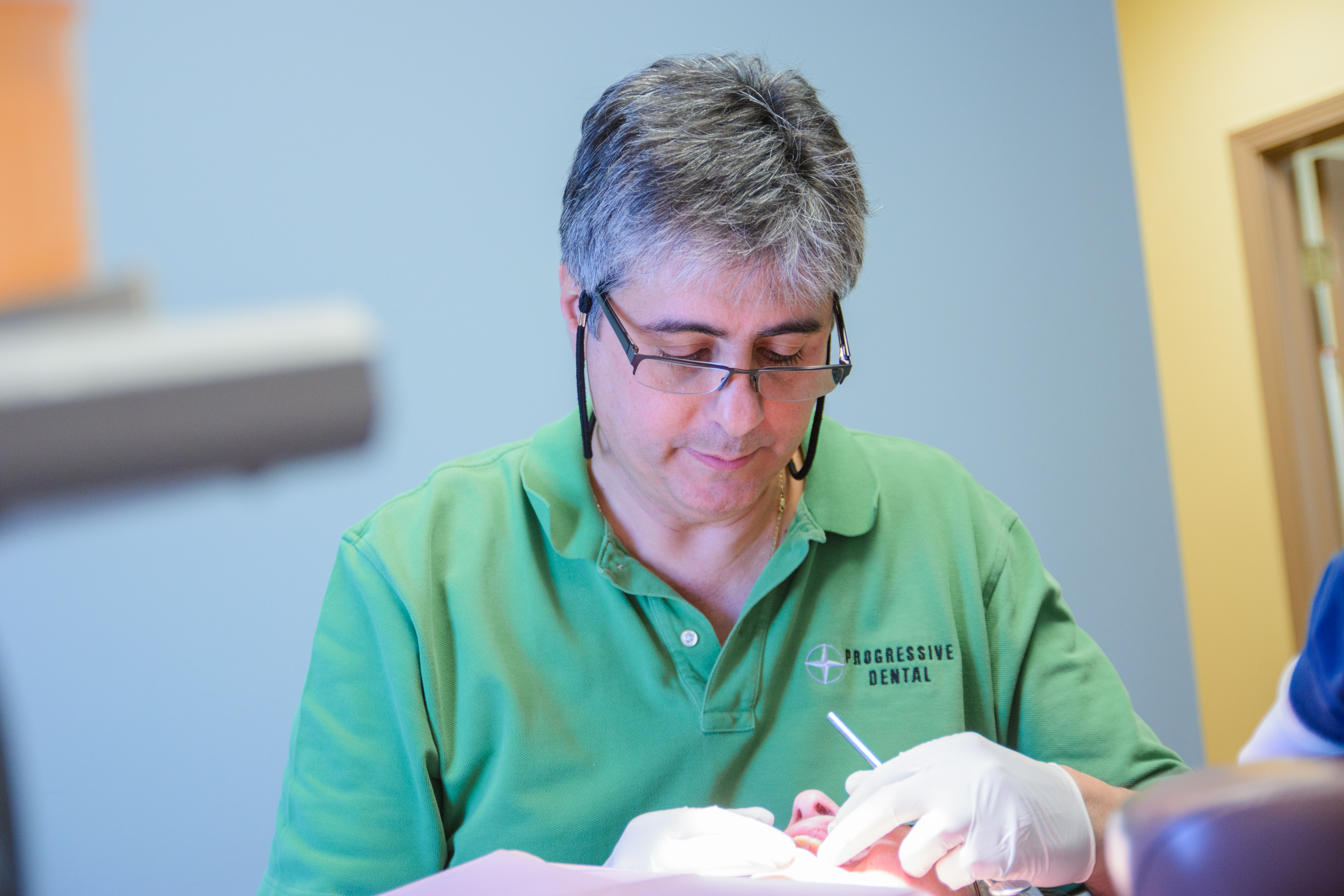The Dangers of Periodontal Disease

Did you know that individuals with diabetes, heart disease, strokes or high stress are more likely to have periodontal disease? Though these chronic illnesses are not easily avoidable, periodontal disease can be prevented.
In order to prevent periodontal disease though, it is important to understand its symptoms, causes and treatments.
What is periodontal disease?
Periodontal disease, better known as “gum disease,” is an infection that damages the tissues and bones that support teeth. This disease is caused by a buildup of plaque on the teeth and gums that lead to inflammation.
Gums are structured to fit snuggly around each tooth. Once gum tissue becomes diseased, it begins to recede from the tooth, causing damage to deeper tissue and the tooth itself. If periodontal disease continues to worsen, teeth may begin to fall out or become so damaged they need to be removed.
How will you know if you have periodontal disease?
Symptoms of periodontal disease include:
- Red and/or swollen gums
- Bad breath that lasts for a long period of time
- Bleeding from brushing and flossing
- Receding gums
- Pus between teeth
- Movement of the teeth
While many warning signs exist, periodontal disease does not always have symptoms. Regular dental checkups are the best way to ensure a healthy mouth.
How can you prevent periodontal disease?
Though some individuals may be more prone to gum disease, there are still simple steps you need to take to avoid permanent damage to your teeth and gums.
- Brush and floss twice each day.
- Visit your dentist regularly.
- Eat a healthy diet and limit sugary snacks
Whether you have a family history of dental issues, or if you are simply trying to maintain a healthy mouth, be sure to schedule regular appointments with Progressive Dental and practice daily dental hygiene for a happy, healthy smile!




